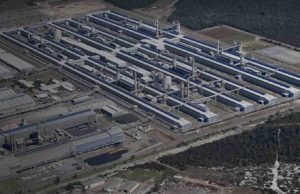The Australian Energy Markets Commission has recommended a major dilution of the renewable energy target, or changing it to an “emissions target” that would allow “clean” fossil fuel generation such as gas to also attract subsidies.
The AEMC, which sets the rules for the National Electricity Market, says the RET is “unsustainable” – mostly because the target cannot be met due to the repeated delays in investment caused by policy uncertainty.
This assessment is supported by most incumbent utilities, including AGL Energy, although it is hotly contested by many in the renewable energy industry, who say that a clear policy signal now would allow the target to be met. But it is likely to become self-fulfilling the longer the uncertainty remains. No new projects have been committed for the last 18 months because of that uncertainty.
The AEMC, which has never been a great fan of renewables, describes the RET as a transfer of wealth paid to the renewable industry by the incumbent fossil fuel industry. If the target is not met, and the burden falls on the consumer to pay for renewable projects the energy retailers chose to not install, then the transfer of wealth goes from the consumer to the renewable industry.
The AEMC suggests the Abbott government has two choices – diluting the target to a floating “real” 20 per cent, as some retailers such as Origin Energy have been pushing for the last four years. This was once seen as highly controversial, but now appears as the very minimum the new government will do.
But the AEMC also suggests that the RET could be transitioned to an “emissions intensity based scheme” for the electricity sector.
The effect of this would be to allocate benefits – and subsidies – to fossil fuel generation such as gas, and coal, where emissions reductions are achieved.
“Such a scheme could be designed in a number of ways, including where generators below a defined emissions intensity level create certificates that generators above the level are liable to purchase,” the AEMC suggests.
“This type of approach would encourage all lower emissions technology options, not only renewable energy, and is therefore likely to meet any emissions reduction target at a lower cost.
“The expected cost of the policy would depend on the size of the emissions reduction target and type of low emissions technologies in the generation mix.”
Realistically, though, it depends on entirely how those targets, and the mechanism is framed. It could simply reinforce the power of the incumbents to protect their own assets – giving retailers an incentive to invest in their own coal generators rather than new capacity and new technologies.








